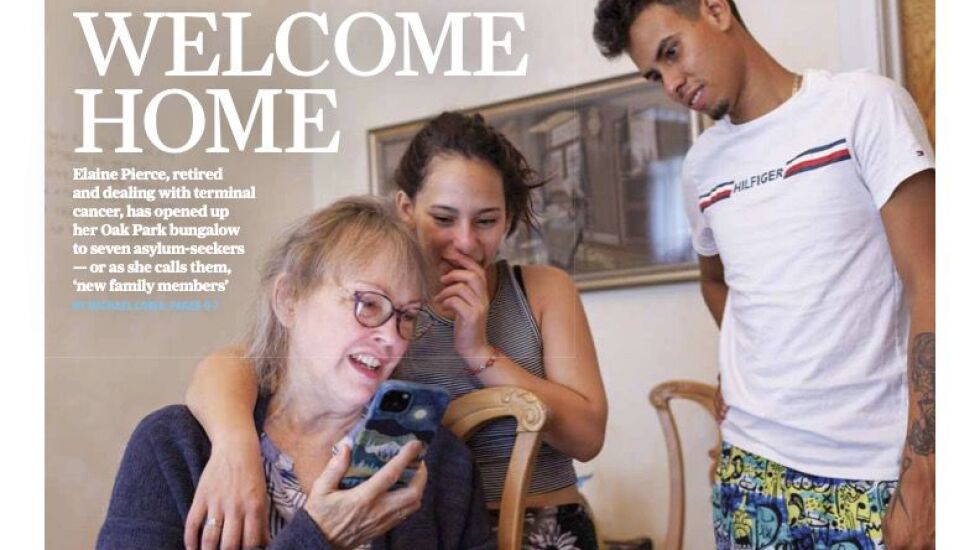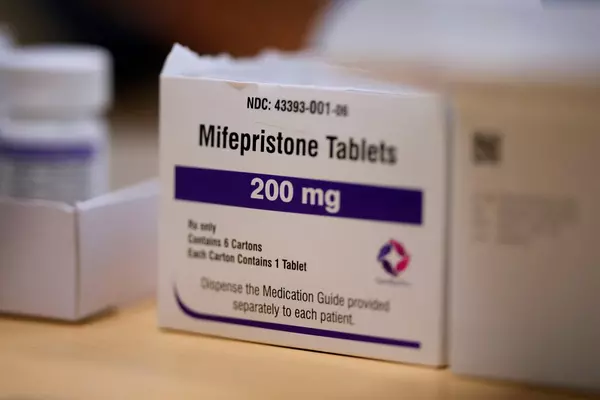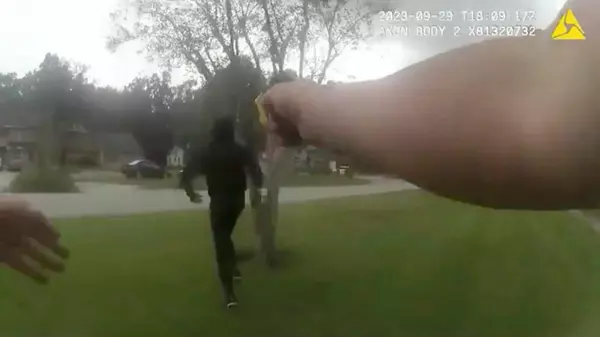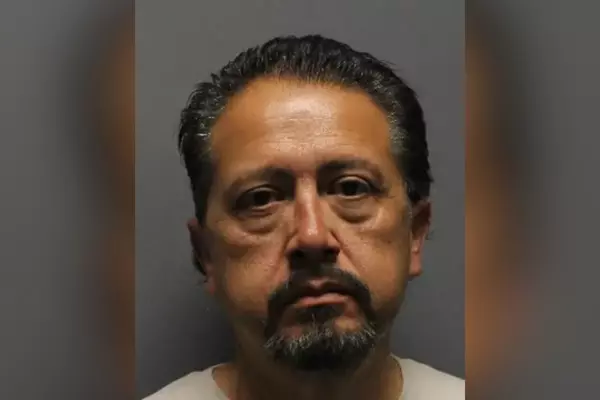I can’t believe it’s been more than a year — 15 months — since Chicago became my home. A whirlwind 2023 brought city elections and runoffs that rang in a new mayor, the end of cash bail and an assault weapons ban in Illinois, the arrival of busloads of Venezuelan migrants, NASCAR’s first street race, Swift mania and four big corruption trials.
The Sun-Times celebrated its 75th anniversary. La Voz, a bilingual section serving Chicago’s Latino communities, turned 3.
For us, it’s been a big year of change. The Sun-Times joined Chicago Public Media last year and became a nonprofit, dropping our paywall and launching membership. In May, Chicago Public Media signed a three-year contract with the Chicago News Guild, another important milestone.
Throughout the year, we deepened our partnership with WBEZ. You can see the results of that collaboration in our comprehensive municipal elections coverage, our investigation into extremismamong police, our examination of the community impact of 50 school closures and more.
We also welcomed a dozen new hires into the Sun-Times newsroom, growing our diversity and coverage. We held listening sessions in different neighborhoods to meet more of our neighbors and hear what’s important to you. And in August, we reorganized our newsroom based on what you told us.
Early results are promising: We’ve grown our digital audiences and deepened our engagement with readers at a time when many news organizations have seen declines. Our newsletter subscribers have nearly quadrupled. And we're just getting started.




Our editorial strategy is all about you
When I arrived in Chicago, my first priority was to get to know the community. As a nonprofit, the Sun-Times’ future depends on our value to our community — our ability to help it thrive.
For me, this has been an incredibly enjoyable task. I experienced: my first Bears game, which was the team’s fifth-coldest in Soldier Field history; my first Crosstown Classic; my first visit to a comedy club (Second City); my first puppet festival; and my first depression dog. I’ve explored museums and galleries, attended concerts and shows, enjoyed unique community festivals, markets and events, and eaten my way through the city and suburbs.
My favorite part has been meeting so many amazing people who have inspired me with their empathy, passion for helping others, knowledge, creativity, resilience, understated humor and hard work. It’s Chicagoans who make me proud to call Chicago home.
Thank you to everyone who attended our listening sessions. Hearing what you care about led us to create an editorial strategy to provide the coverage you asked for.

We’ve focused on making our coverage more reflective of everyday people and life in Chicago. We wrote more about unsung Chicagoans like Field Museum scientist Steve Goodman and the De La Cruz family, who donated their beloved tree to the city for Christmas. We covered young people helping the homeless and sharing their talents. And we documented what it’s like to live in Chicago’s most violent neighborhood.
We’re reporting more on solutions, not only problems, starting with our Democracy Solutions Project in partnership with WBEZ and the Center for Effective Government.
We’re also amplifying community voices, including our 12 new guest columnists who won our “Chicago’s Next Voices” contest, and 11-year-old Lucy Holloway, whose artwork became a 100-foot mural on the Salt Shed. You can find reader responses to our questions of the day in our newsletters and read multiple community opinion pieces every week.
Growing information equity to help Chicago thrive
We’re doing all of this because we believe that local news, available to everyone (not only those who can afford to pay), is essential to improving our neighborhoods and building healthy, equitable communities.
At a recent event in Springfield, Texas Tribune co-founder Evan Smith said we’re living in two Americas — one informed, one not.
That divide keeps growing. Since 2005, almost a third of U.S. newspapers have closed, with two more closing every week, leaving half of U.S. counties as news deserts, according to research by Northwestern University’s Medill School. Places without news sources tend to experience more poverty, lower voter participation and more corruption.
I feel optimistic, motivated and privileged to live, work and serve in a news town as robust as Chicago, where we have an opportunity to help close the growing divide.
The Sun-Times has exciting plans for 2024: more listening sessions; compelling coverage of the election and the Democratic National Convention in Chicago; a new Money desk launching in January; and expanded arts and culture coverage in partnership with WBEZ and Vocalo.
There are so many more stories to tell, so many more Chicagoans to connect with and so many more lives to touch. We hope you’ll join us for the journey.











